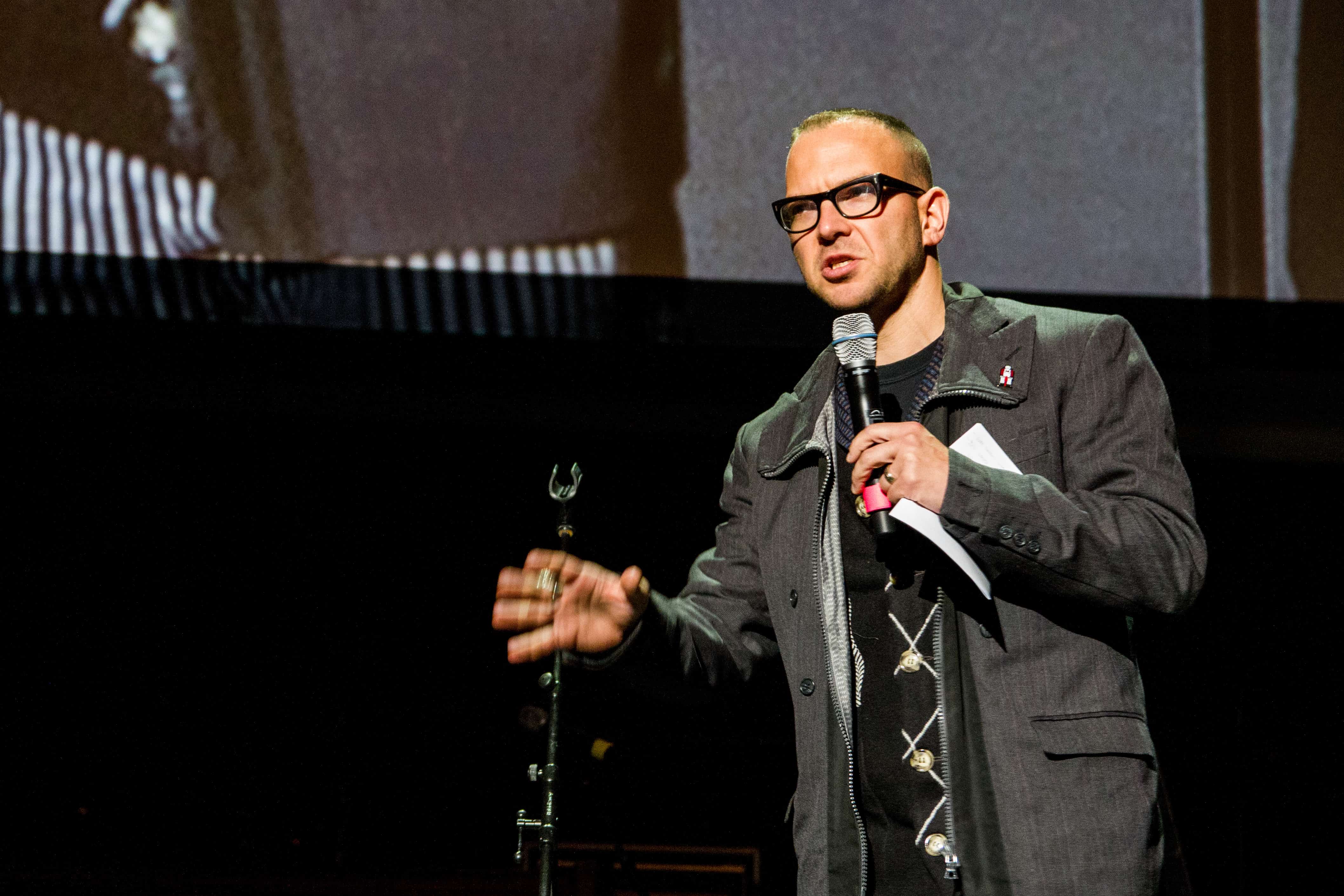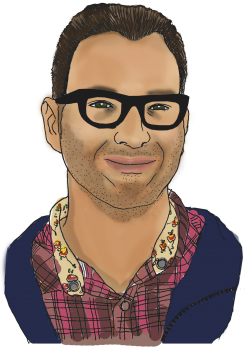This past weekend, a roster of some of the world’s most renowned performers, artists, and thinkers gathered at Convocation Hall to take part in the Glenn Gould Variations, a two-day conference inspired by Canadian luminary Glenn Gould.
When assembling the group, event organizers Pia Kleber and Ron Davis wanted to select presenters who best lived up to Gould’s legacy, not only as a musician and performer, but also as a media theorist and provocateur. Very early in the process, Kleber and Davis considered including writer and Boing Boing magazine editor Cory Doctorow as part of the conference’s lineup, and he was ultimately chosen to play an integral part in the event. Doctorow presented at the Glenn Gould Variations and served on its Advisory Board.
[pullquote]“Gould would have seen that any regulation that allows for the kind of complexity and negotiation needed by the entertainment industry could never be the kind of regulation that could govern the activity of people as they go about their daily realm on the internet,”[/pullquote]
Doctorow’s participation in the Glenn Gould Variations certainly adheres to its organizers’ express goal of perpetuating Gould’s tradition of thinking critically about the media landscape in which we all find ourselves. Gould predicted, with almost jarring accuracy, many of the interactions that listeners have with music today. Through his concept of “The Kit,” Gould predicted a time when we would have a level of interaction with recorded music that would resemble that of a studio producer. The concept of a remix, or even a homemade playlist, can also be connected to some of Gould’s thoughts.
Doctorow thinks about our interaction with mass media from a different angle: how should society organize itself to govern its use of media?
In Doctorow’s opinion, we should be working towards creating a level playing field for content producers, consumers, and those in between.
“Gould would have seen that any regulation that allows for the kind of complexity and negotiation needed by the entertainment industry could never be the kind of regulation that could govern the activity of people as they go about their daily realm on the internet,” Cory explained in an interview last week.
The appropriation of creative concepts for new, derivative works is commonplace in pop culture. You can’t listen to more than a half-a-dozen top-40 tracks without running into a few with recognizable samples from other songs. Musicians with the resources to properly license these samples can focus on the creative process without having to worry about legal roadblocks. For underground, independent artists, however, it can be a battle.
Take the example of the artist Dangermouse, who has become a household name in pop production in recent years. Before becoming the go-to man for the likes of Beck and The Shins, Dangermouse’s 2004 The Grey Album mixed the music of the Beatles’ The White Album with an acapella version of Jay-Z’s The Black Album. It was well received by critics and listeners alike, but sparked the ire of record label and Beatles’ copyright holder EMI, who sought to cease distribution online using legal means. Luckily for Dangermouse, EMI’s efforts ultimately fell flat, and The Grey Album remains a cult hit to this day.
Doctorow has some big ideas about how to liberalize media distribution by allowing remix culture to flourish, giving consumers the rights they need to enjoy their media on their own terms, and to ensure that independent artists aren’t slaving away for a pittance.
“[For] every context in which we can’t control or count every use of music — like radio, karaoke bars, live clubs, stores and so on — you just pay a blanket license, and [then] you can play all the music you want,” Doctorow says. “You do some type of statistical sampling, you pay a fee, the money is paid out to artists. [But] the collection societies that collect this money are pretty corrupt, and have totally opaque accounting practices.”
Doctorow points out that the type of statistics that have been applied in these sort of arrangements are child’s play compared to the accuracy of the analysis that could be applied to the digital consumption of media today thanks to the transparency of Linux and the analytical capacity of Google.
Doctorow’s proposition, the mere mention of which would probably make a record executive keel over, is a system in which artists would get paid directly based on the amount of interaction consumers have had with their work.
“Any internet service provider that wants [to] could offer a ‘Download all the music on the internet using any technology you want’ package to its customers for five dollars a month,” Doctorow explains. “We’ll use statistical sampling, we’ll figure out who’s listening to what, and will give that money to artists. If we did that tomorrow, the next day, money would go from the hands of people who love music, to the hands of people who make music.”
Current solutions do exist to reduce the middleman presence needed to process a sale of music. Bandcamp, for example, offers musicians a platform where they can sell their work and keep between 85–90 per cent of the revenue. Google Play, which is readily available on many Android phones, offers artists 70 per cent of the revenue made from the sale of their music. But whether these types of solutions can gain the traction necessary to really make a difference is another question.
“Even if Bandcamp was wildly successful, it wouldn’t stop the record industry from demanding more censorship and more control over the Internet,” Doctorow says. “In the UK, the Digital Economy Act contains something called the ‘three strikes provision.’ This says that if you’re accused of three acts of copyright violation, your family loses its Internet access.”
In 2011, the United Nations declared internet access to be a basic human right, and it comes as no surprise that it is a belief shared by Doctorow.
“One of the things that we know about the Internet is that having it radically changes the life of the people who get it… In everything that we care about, their prospects improve. And we’re proposing to take [that] away because the record industry is worried about a profit maximization strategy.”
Today’s youth are largely apathetic to labels’ pleas to stop their illegal downloading and more than ever before, artists are eager to appropriate a variety of sounds into their music. On top of all that, powerful voices like Doctorow’s continue to call for copyright revolution. All things considered, it’ll be interesting to see how long record labels can impede the adoption of a liberal music distribution system fit for the standards of Cory Doctorow.



